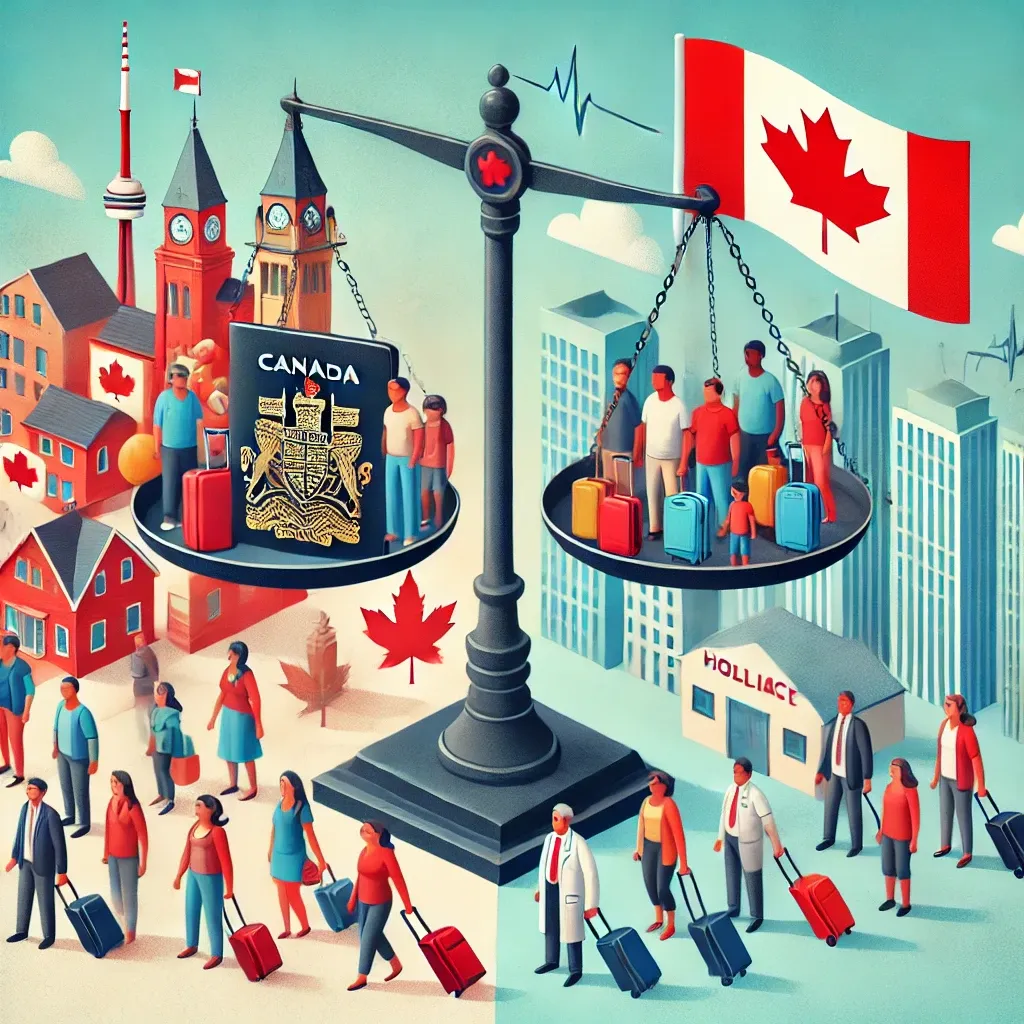
In a recent turn, Canada has announced plans to reduce immigration targets to address growing concerns over housing shortages, healthcare strain, and infrastructure needs. While Canada has long been known as a beacon for newcomers, the government now aims to recalibrate its approach, seeking to balance economic needs with societal capacity. The target adjustment follows record immigration levels in 2022 and 2023, where Canada welcomed over 400,000 newcomers each year, largely to support an aging workforce and boost economic growth.
Critics argue that reducing immigration will hinder economic expansion and limit the country’s global competitiveness, as many industries face acute labor shortages. Advocates for the policy shift, however, emphasize that the rapid growth is putting untenable pressure on urban housing markets, resulting in soaring rents and limited affordable options for Canadians and newcomers alike.
The policy shift will primarily affect family reunification and some categories of economic immigration. Canada will, however, continue to prioritize skilled labor in high-demand sectors. Immigration remains a critical component of the nation's fabric, and officials are working to strike a balance that ensures sustainable growth without compromising the quality of life for all residents.
Canada’s policy adjustment signals a nuanced approach to immigration, one that recognizes both the advantages of welcoming newcomers and the urgent need to address the challenges that come with rapid population growth. The path forward may demand innovative solutions to maximize immigration’s benefits while maintaining livable cities and communities for everyone.
George Moen: Publisher / Co-Founder WRN News
Tags: #George Moen #Geo Politics # George Moen # Housing #Immigration
